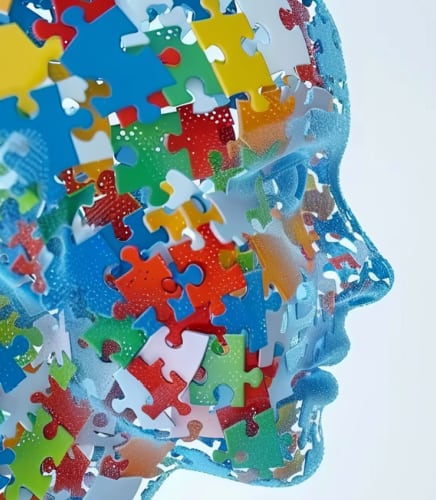Dementia Treatment
Dementia Treatments include memory and brain training. Each journey through services looks different.
When it comes to dementia treatments, your brain matters – but so does your story.
Your personal story is just as important as what’s happening in your brain when it comes to treating dementia. Your brain matters, but so does your life story. Everyone’s experiences and background are unique, and they play a big role in how dementia affects them. By understanding both the physical changes in your brain and your personal history, we can create treatments that work best for you. Our goal is to take care of all aspects of your health, making sure you feel understood and supported every step of the way.
Medications
There are various pharmaceutical treatments available to help manage dementia symptoms and slow its progression, offering potential relief for individuals dealing with the condition. Current research demonstrates promising evidence when partnering medication with activity-based interventions.
Cognitive Training
Cognitive training programs provide structured exercises and activities designed to stimulate the brain and maintain cognitive function, assisting individuals in retaining skills and enhancing memory despite the challenges of dementia. Current evidence suggests skilled activities may improve or delay symptoms.
Lifestlye Support
Lifestyle support encompasses a range of strategies and modifications aimed at optimizing well-being and independence for those with dementia, including dietary adjustments, exercise regimens, and social engagement initiatives tailored to improve quality of life.
Our Dementia Treatment Services
Diagnosis Education
Comprehensive Evaluation
Cognitive Training
Dual Tasking
Lifestyle Support
Long-term Support
Dementia Treatments require you to trust someone.
Trust us.
Schedule an evaluation and have the conversation.
Memory loss is a vulnerable aspect of health, often causing delays in seeking treatment due to fear or judgment. You deserve a provider who understands the brain and memory, committed to helping you stay in control without any judgment.
Establish a relationship with a memory specialist.
Just like you go to your primary care physician annually for a check-up, scheduling an annual comprehensive evaluation with a trained professional is highly recommended if you are concerned about memory loss or dementia. There are dementia treatments and conversations that can be conducted to help you remain in control of this area of your health.
Stay active and seek adventure!
One of the best things you can do for your brain is to remain physically active and seek new opportunities to learn.
Our Therapists
Unlike many other occupational therapy teams who provide general treatments for a variety of conditions, the practitioners at Buffalo Occupational Therapy focus their attention only on neurological rehabilitation science to ensure the highest quality treatments for mild cognitive impairment, all forms of dementia, and neurological symptoms of traumatic brain injury, stroke, and other neurodegenerative conditions.
Michelle Eliason, MS, OTR/L
Owner, Cognitive Scientist,
Hannah DiFrancesco, COTA/L, NASM-CES
Clinic Manger, Lead Practitioner, Mentor
Adrianna Brown, MS, OTR/L
Occupational Therapist
Marti Greco, MS, OTR/L
Occupational Therapist
Brooke Kirisits, MS, OTR/L
Occupational Therapist
Dementia Treatments for all types and stages.
We will meet with you, learn your story, read your medical history and diagnosis, and design a dementia treatment or memory-support path that meets your needs.
Mild Cognitive Impairment
Alzheimer's Disease
Lewy Body Dementia
Frontotemporal Dementia
Unspecified and Others
We are A Full Spectrum Memory and Motor Practice
No two people experience mild cognitive impairment and dementia the same way – even if they are diagnosed at the same time and have the same age and sex. Dementia treatment requires specialized knowledge of the brain and cognitive processes that generalized services cannot offer. Buffalo Occupational Therapy practitioners only treat memory and motor changes related to neurological injury which allows us to design a specific path for each patient based on the current research-supported evidence.
Frequently Asked Questions
It’s completely normal to have questions, please contact us if you have a question that is not represented below.
What is cognitive therapy for dementia, and how does it work?
Cognitive therapy for dementia involves structured interventions aimed at maintaining or improving cognitive function through exercises and activities designed to stimulate the brain.
What are the goals of cognitive therapy in dementia treatment?
The goals include, but are not limited to, improving attention, multi-tasking, improving dual-tasking like walking while talking, preserving cognitive abilities, enhancing memory, improving problem-solving skills, and promoting independence in daily activities for individuals with dementia. All goals are tailored to each person’s diagnosis, abilities, and personal goals.
Who can benefit from cognitive therapy, and at what stage of dementia?
Individuals at various stages of dementia can benefit from cognitive therapy, as it can help slow cognitive decline and improve quality of life.
What techniques or strategies are used in cognitive therapy sessions?
Techniques may include memory exercises, problem-solving tasks, dual-tasking training (addressing movement, coordination, attention, and cognition at the same time), reality orientation, and reminiscence therapy. All dementia treatment techniques are tailored to the individual’s needs and abilities.
How often are cognitive therapy sessions typically scheduled?
Sessions are usually scheduled regularly, ranging from once a week to multiple times per week, depending on the individual’s needs and the program’s structure. Most research indicates intensive cognitive therapy (at least 2x weekly), followed by a maintenance period. This is the methodology we follow in our clinic.
Are cognitive therapy sessions tailored to each individual's needs?
Yes, cognitive therapy sessions are customized based on the individual’s specific cognitive strengths and weaknesses, as well as their preferences and goals. This is why cognitive therapy must be in one-on-one treatment sessions.
Can cognitive therapy help manage behavioral symptoms associated with dementia?
Yes, cognitive therapy can sometimes help manage behavioral symptoms by improving cognitive function and providing alternative coping strategies.
Are there any potential risks or side effects of cognitive therapy?
Cognitive therapy is generally considered safe, but it’s essential to work with a qualified therapist to ensure exercises are appropriate and tailored to the individual’s abilities.
How long does it take to see improvements from cognitive therapy?
The timeframe for seeing improvements can vary depending on the individual and the severity of their dementia, but some individuals may start to see benefits within a few weeks to months of starting therapy. Most of our patients feel more in-control after the initial evaluation knowing there are options!
How can caregivers or family members support someone undergoing cognitive therapy for dementia?
Caregivers can provide encouragement, assistance with exercises, and reinforcement of strategies learned in therapy to help support their loved ones’ progress.
Buffalo Rehab
Buffalo Rehab in West Seneca, NY Authored by Michelle Eliason, MS, OTR/L, CKTS, C.D.S.Buffalo Rehab Option : Buffalo Occupational TherapyBuffalo Occupational Therapy is a specialized buffalo rehab option and was founded in October of 2018 through the Aging with...
Outpatient Occupational Therapy
Outpatient Occupational Therapy Authored by Michelle Eliason, MS, OTR/L, CKTS, C.D.S.What is the role of outpatient occupational therapy? Outpatient occupational therapy, like every other outpatient rehabilitation, is a specialized area of rehab that makes the ability...
Stroke Rehabilitation
Stroke Rehabilitation Authored by Michelle Eliason, MS, OTR/L, CKTS, C.D.S.In search of an outpatient neurological stroke rehab program in Buffalo, NY?When should you have stroke rehabilitation?Depending on how big your stroke was and the area of the brain your stroke...










